How To's
The REAL Taco Bell Franchise Cost
Published
5 years agoon
By
Ellie M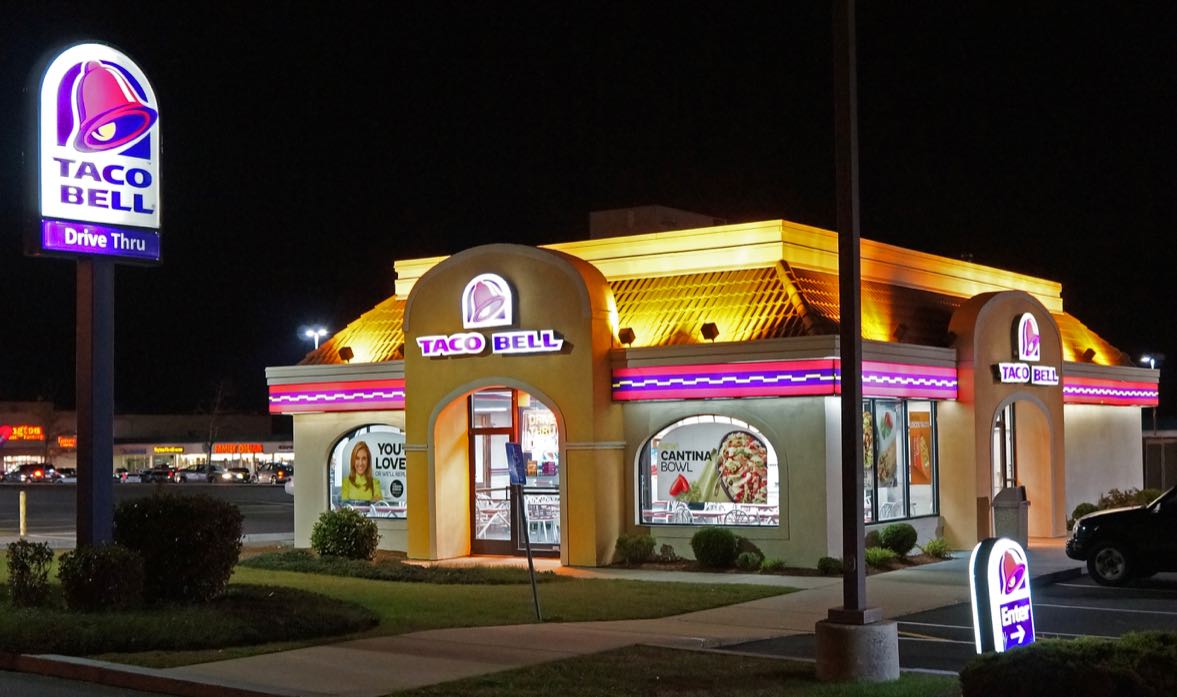
Are you interested in franchising a Taco Bell, but have no idea what a Taco Bell franchise costs? And where exactly do you start if you want to own a Taco Bell franchise? This guide will give you the low down on the REAL Taco Bell franchise cost to set you on the path to franchise ownership.
Most Americans turn to Taco Bell for their Mexican food fix. In fact, a recent poll named the fast-food chain as America’s Favorite Mexican Restaurant. Indeed, the restaurant chain has gone far since Glen Bell first started serving tacos at its first location in 1962 in Downey, California. Today, the global brand is a subsidiary of Yum! Brands, the same company that franchises Pizza Hut and KFC.
Taco Bell has more than 7,000 restaurants across the states and serves over 40 million patrons every week. Now that’s a lot of nachos, tacos, quesadillas, and cinnamon twists! And because of its immense popularity, it’s no wonder why many entrepreneurs see the potential in the brand and want to be a part of it.
Helpful links: Get insider info on franchising news, interviews, and more on Franchise How.
How Much Does a Taco Bell Franchise Cost?
But how much exactly does a Taco Bell franchise cost? The initial investment required falls somewhere between $570,600 and $3,049,100. Bear in mind, however, that these amounts only cover the costs needed to operate for the first three months. So, aside from what you need to set up shop, there are other fees not included in this estimate.
The cost varies depending on the facility you’re planning to get a franchise for. For instance, Traditional Units, come with a heftier price tag. These are restaurants in free-standing, permanent buildings with a kitchen, customer seating, and possibly, a drive-thru. On the other hand, In-Line Locations, with or without a drive-thru, will cost a bit less.
Initial Cost Breakdown
The table below shows the Taco Bell franchise cost breakdown based on their 2020 FDD.
| Name of fee | Low | High |
| Application and Background Check Fee (per person) | $350 | $600 |
| Initial Franchise Fee | $25,000 | $45,000 |
| First Unit Construction Services | $22,250 | $27,250 |
| Optional Real Estate Services | $0 | $37,250 |
| Permits, Licenses, Security Deposits | $74,000 | $74,000 |
| Real Property | $20,000 | $1,400,000 |
| Building/Site Construction | $177,000 | $1,000,000 |
| Equipment/Signage/Decor/ POS | $200,000 | $390,000 |
| Initial Inventory | $7,000 | $10,000 |
| Grand Opening Expense | $5,000 | $5,000 |
| Additional Funds – 3 months | $40,000 | $60,000 |
| Estimated Total | $570,600 | $3,049,100 |
Aside from the items listed above, there are also additional fees that are proportionate to the franchise profit margin. For example, the Period Franchise Fee amounts to 5.5% of the unit’s gross sales. On the other hand, the Period Marketing Fee costs 4.25% of the unit’s gross sales.
A franchisor would also have to cover other finance components such as Back of House and Support Services ($2,034 per year) as well as the Front of House and Support Services ($1,590 per year).
In addition to that, they also have an additional trainee fee of $350 per person, with the cost of training materials to be established by the franchisor. Their FDD has a full list of other fees franchisees might need to settle.
How Do I Start a Taco Bell Franchise?
The first step to getting a franchise is going to their website and filling out an application form, whether you’re eying a business opportunity in the US or abroad.
Aside from your personal data, the form also requires basic info to know if you’re a good fit for the franchise. For instance, they’ll ask how much in liquid assets do you or your partnership have access to for investment.
In addition to that, you’ll also need to disclose if you have a quick-service restaurant (QSR) experience and if you’re currently a multi-unit franchisee.
Before they consider you as a franchisee, they’ll run background as well as financial checks to see if you’re qualified. If you’re approved, then Taco Bell with contact you, and you can start talking about franchise requirements.
While waiting for approval or even before applying for a franchise, it’s best that you study your market viability. For instance, where’s the best location to put the restaurant? And are there strong competitors already reigning supreme over the area you’re eyeing?
By assessing the market ahead of time, you can think of options and make informed decisions later if and when (fingers crossed) your application gets approved.
You may like
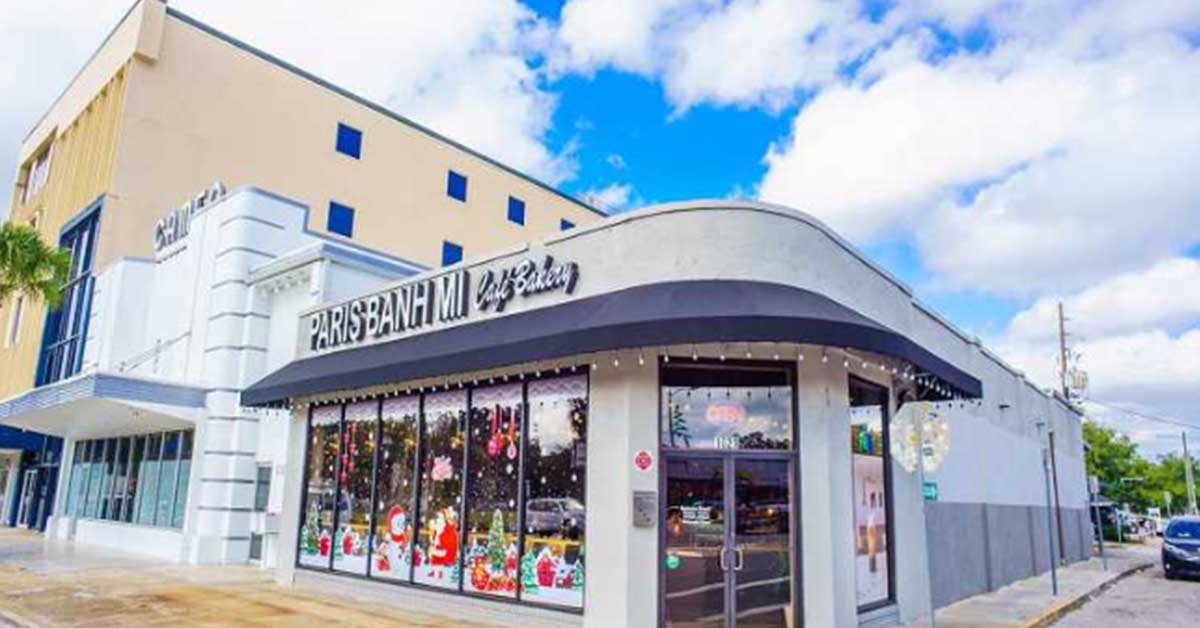
Are you gearing up for a new business in 2024? Forget the next big tech start-up -the latest trend in town might be a perfectly toasted baguette. Take Paris Banh Mi Cafe and Bakery, for instance. This Vietnamese sandwich shop is rapidly growing, with locations popping up from coast to coast, from California to Florida.
But what’s the secret behind their success? Explore why the Paris Banh Mi franchise has snowballed in the last two years and be inspired to start your own business .
About Paris Banh Mi
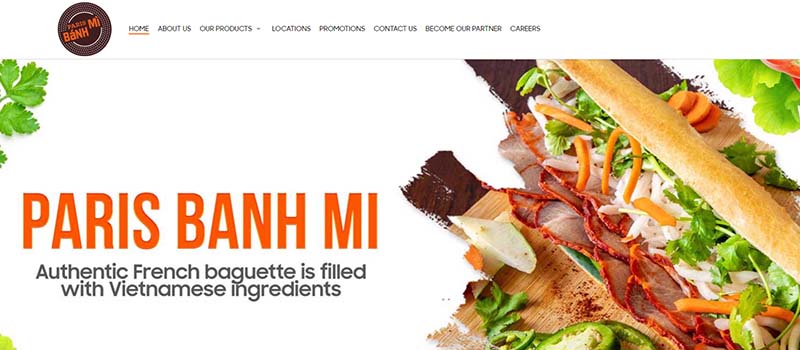
The French baguette was introduced in Vietnam in the mid-19th century when the country was still a part of French Indochina. In the 1950s, Saigon saw the birth of a unique Vietnamese sandwich, “bánh mì,” which quickly became a favorite food of a large part of the population.
The story of Paris Banh Mi started in Orlando, Florida, at 1021 E Colonial Drive in 2019. Hien Tran and Doan Nguyen, a married couple passionate about food, opened the first Paris Banh Mi location. Their concept was simple: bring the delicious flavors of Vietnamese banh mi sandwiches, traditionally baguettes filled with savory meats and pickled vegetables, to a broader audience.
The customers quickly fell in love with the fresh ingredients, bold flavors, and convenient fast-casual setting. Now, Paris Banh Mi Cafe and Bakery promises to bring their customers the best “Baguette Banh Mi” taste.
In just two years, the laid-back cafe and bakery in Florida multiplied into a chain of stores in the county. Today, Paris Banh Mi is serving customers in 46 locations all across the USA. The company plans to expand to 100+ locations by 2026.
Each Paris Banh Mi Cafe and Bakery has a clean and spacious dining area, fast service, friendly staff, and a selection of delicious food and pastries. Take a peek at some of their mouth-watering baguette sandwiches filled with authentic Vietnamese ingredients.
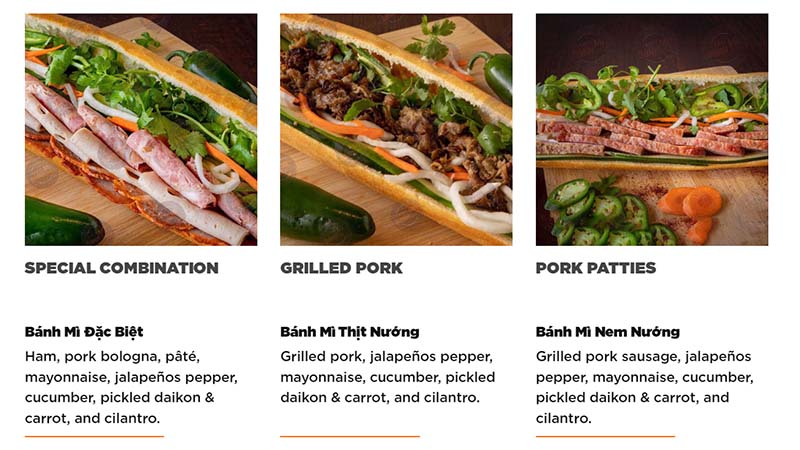
Source: Paris Banh Mi website
For those craving something sweet, the bakery indulges you with a variety of French pastries. Check out their sandwiches, pastries, and beverages on the Paris Banh Mi Cafe and Bakery menu page.

Source: Paris Banh Mi website
Why Own a Paris Banh Mi Franchise
Paris Banh Mi is a franchised quick-service restaurant offering exciting opportunities for aspiring business owners. Many nail salon owners and aspiring entrepreneurs are switching to buying a Paris Banh Mi franchise. The main reasons why they love Paris are:
- It opens a great opportunity and is more profitable.
- Seamless franchising process and fewer things to worry about
- Required low capital to open
- Higher end-of-year profits
The benefits extend beyond operational efficiency. Paris Banh Mi boasts a surprisingly low-cost entry point compared to other franchises.
The initial franchise fee is manageable at $60,000. The total investment for opening a Paris Banh Mi can range from $200,000 to $500,000. This amount reflects the option to acquire a pre-existing, equipped location (second generation) for a lower investment cost or a complete build-out from scratch option.
Regardless of the chosen route, the investment is significantly lower than that of building a business from the ground up, making Paris Banh Mi an attractive option for many entrepreneurs.
Licensing Information
Owning a Paris Banh Mi franchise is not just about delicious food! The company is looking for dedicated individuals who can run their restaurant full-time. They will provide a multi-day training program for new franchisees. In addition, Paris Banh Mi offers ongoing support for franchisees, guiding them to make informed decisions and thrive in this exciting industry.
You’re a good fit for a Paris Banh Mi Cafe Bakery franchise if you are:
- Passionate about food, especially fresh baguettes and pastries
- A self-starter with a proven track record in business
- Financially responsible with a focus on results
- Ready to fully commit to building the Paris Banh Mi brand
If you have what it takes, don’t hesitate to contact them through the franchise hotlines on their franchise opportunities page.
Conclusion
Buying a restaurant franchise is one of the most attractive routes in the world of franchising. Paris Banh Mi makes owning your own business a lot easier. Forget the high costs and headaches of starting from scratch. Their low investment and comprehensive training program mean you can be your own boss with a delicious product. If you are ready to take a bite out of success, contact Paris Banh Mi today!
How To's
Chick-fil-A Franchising Opportunities in 2024
Published
1 year agoon
March 14, 2024By
Dan Wesson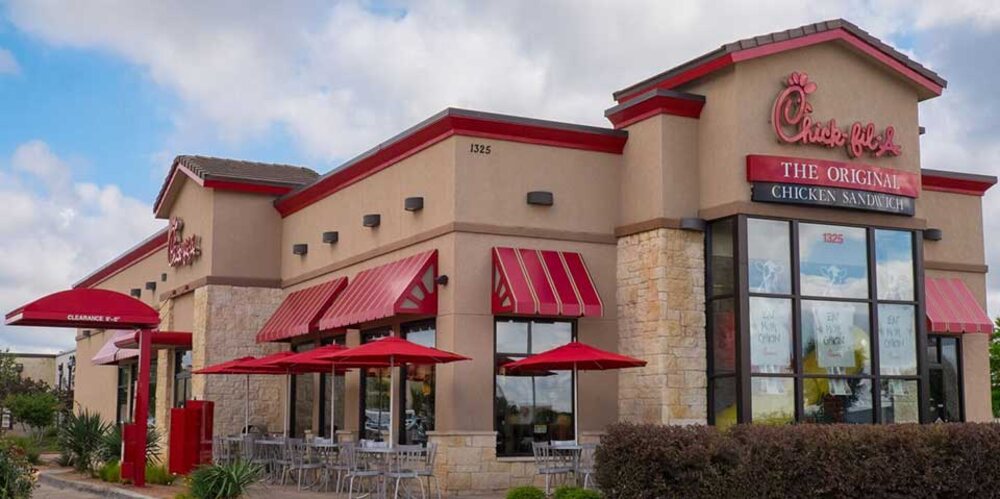
Buying a franchise from Chick-fil-A is an excellent money-making and healthy option. The fast-food chain has been serving hungry consumers the most delicious chicken sandwiches unmatched by other fast-food restaurants. Buying a Chick-fil-A franchise means investing in a good business and your future. It also lets you continue the culture behind the popular food chain. Here are Chick-fil-A franchising opportunities that will give you entrepreneurial freedom in 2024.
Company Overview
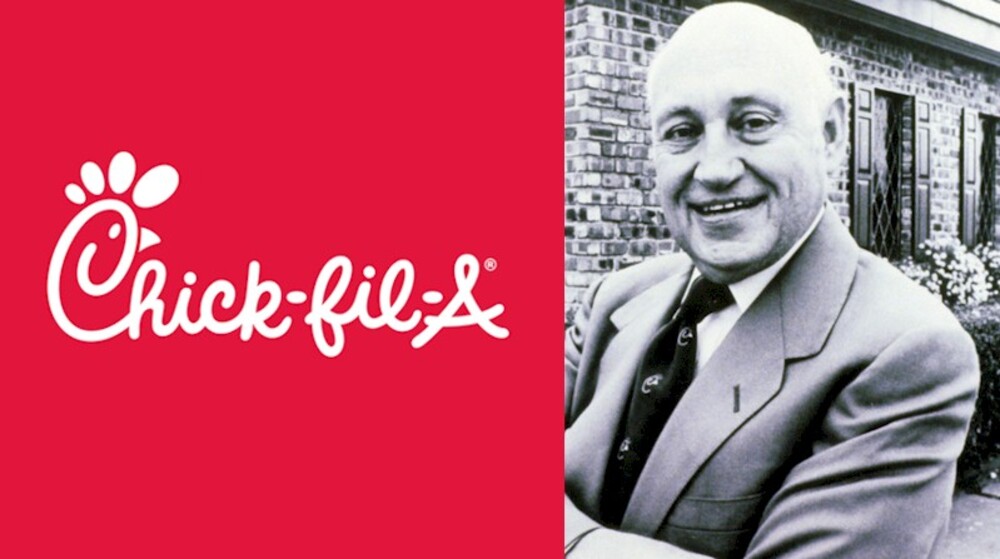
Founded in 1946 by Truett Cathy, Chick-fil-A is deemed one of the longest-running chicken sandwich chains in the United States. The founder opened his first chain in Hapeville, Georgia, and has become a favorite soul food for many. Truett had worked in restaurants seven times a week and knew the importance of rest. That’s why he vowed to close Chick-fil-A every Sunday. He values rest and worship, so he sets aside one day of the week for his employees—a practice that Chick-fil-A still upholds today.
Chick-fil-A also selects franchisees that uphold their values and passion. The company takes great care in selecting who they do business with, which includes getting to know candidates through a lengthy and intensive selection process. The founder’s vision is to influence the people and communities they serve. Chick-fil-A also seeks franchise candidates in Puerto Rico, Canada, and the United States.
Chick-Fil-A candidates are required to show personal financial integrity and stewardship. They also need to have proven experience in leadership and a strong business acumen. Chick-fil-A ensures that candidates showcase entrepreneurial spirit, a strong character, and a growth mindset. This is to uphold the vision and values that Truett started in 1946.
Franchise Training Details
- The initial on-site training programs last three to four weeks. However, the duration and actual location of the training will vary.
- The training program primarily covers operational aspects, such as food preparation, service, customer relations, accounting, communications, purchasing, planning, maintenance, policies, management styles, and marketing.
- The franchisor may require franchisees to attend various conferences and seminars occasionally. This is on top of the initial training program.
- The franchisor may also offer various programs that operators can use in advertising products or hiring staff, which aren’t stipulated in the Franchise Agreement.
Franchise Territory
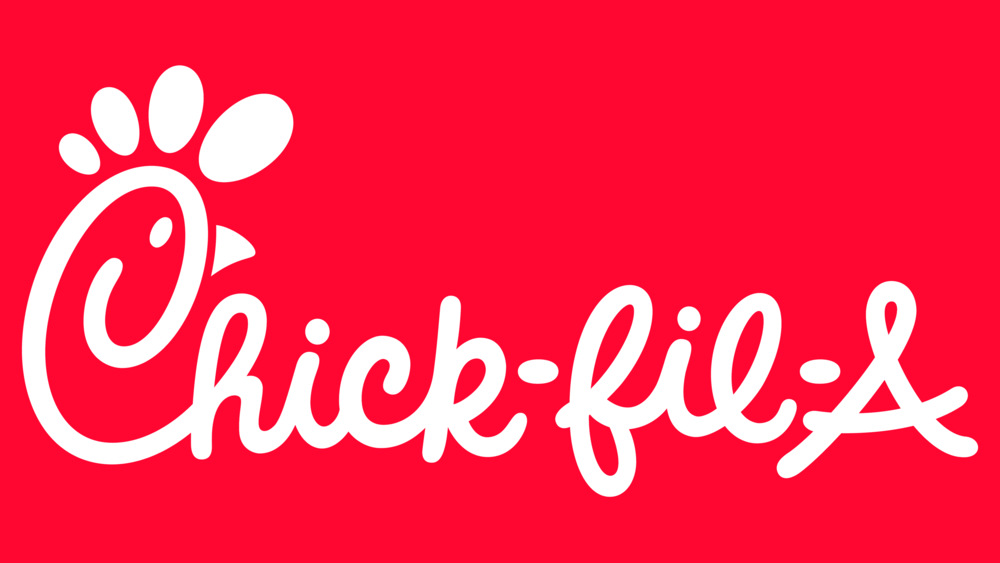
- The franchisor will grant franchisees one Chick-fil-A restaurant at the franchisor’s designated location.
- Franchisees will not get exclusive or protected territory, so they may face competition from other operators.
Franchise Obligations and Conditions
- Franchisees must devote their time and effort 100% to operating their Chick-fil-A restaurant.
- The franchisor only allows franchisees to sell products approved by Chick-fil-A. This also applies to franchisees with a Chick-fil-A-associated food truck.
Franchise Term and Renewal
The franchise term expires on early December 31, the year the agreement is signed or whatever the lease expiration is. Franchisees may apply for one-year extensions unless written notice is given 30 days before the franchise term expires.
Financial Assistance
- The franchisor designates locations, leases, and subleases the store’s premises to franchisees. The lease and sublease terms will vary depending on the type of Chick-fil-A restaurant and location.
- The franchisor also engages in concession agreements that oversee the utilization of non-traditional satellite unit locations with the proprietors or administrators of said satellite unit spaces.
- The franchisor offers extended payment periods for specific pre-opening costs stipulated in the Franchise Agreement. Additionally, the franchisor leases equipment to operators, charging a monthly rental fee based on the fair market rental value established by Chick-fil-A using its singular and exclusive business judgment. It’s important to note that neither the franchisor nor any affiliated entities provide any financing arrangements to operators, either directly or indirectly.
Did You Know?
Here are some fun facts about Chick-fil-A you need to know!
- Did you know that Chick-fil-A only uses peanut oil for frying? That’s what makes the chicken its unique flavor! Chick-fil-A is also the single most significant purchaser of peanut oil in the United States. They also believe peanut oil is a healthier option.
- The best Chick-fil-A promotional gig was the “First 100,” where the first 100 customers inside a new Chick-fil-A restaurant would get free chicken for a year.
- Did you know that the founder, Truett Cathy, invented the chicken sandwich? He worked for a restaurant in Atlanta, and the newly delivered chicken breasts were too big to serve as airline food. He turned this into a meal for the staff.
- You can get a free ice cream cone by walking up to the counter and trading your toy when ordering the kid’s meal.
Franchise Cost
Your Investment
| Name of Fee | Low | High |
|---|---|---|
| Initial Franchise Fee | $10,000 | $10,000 |
| Opening Inventory | $13,500 | $140,000 |
| First Month’s Rental of Equipment | $750 | $5,000 |
| First Month’s Lease/Sublease of Premises | $2,550 | $85,500 |
| First Month’s Insurance Expense | $240 | $12,000 |
| Additional Funds | $491,345 | $2,550,935 |
| ESTIMATED TOTAL | $518,385 | $2,803,435 |
Other Fees
| Type of Fee | Amount |
|---|---|
| Advertising | May vary (a) between 0% to 3.25%, to be determined by Chick-fil-A, as a percentage of gross receipts or (b) by vote of operators in local or regional areas. |
| Advertising Support and Services Fee | Advertising support and services fees incurred, if any, will vary based upon the support and services offered by the franchisor, and selected and received by the operator; the current in-house blended hourly rate for services is $100; Operator will pay any additional fees, costs and expenses as applicable. |
| Additional Franchise Fee | $5,000 for each additional Chick-fil-A restaurant business. |
| Business Services Fee | $300 (monthly). |
| Rent (Traditional Restaurant) | $2,550 to $85,500 (including where applicable, percentage rent). |
| Occupancy Charge (Satellite Unit) | Determined under the concession agreement attached as an exhibit to the concession sublicense agreement; currently estimated to range between 4% and 30% of gross receipts. |
| Food Truck Usage Fee (Food Truck) | Currently $2,100 to $3,100, plus additional fees, costs and expenses. |
| Food Truck Insurance Fee (Food Truck) | Currently $250 to $450 (monthly). |
| Insurance | $240 to $12,000 (monthly). |
| Equipment Rental | Currently $750 to $5,000 (monthly). |
| Hardware and Software Support; High-Speed Internet Access | $9,500 to $20,000 (annually). |
| Fines – Minimum Standards and Procedures | Will vary under the circumstances. |
| Indemnification | Will vary under the circumstances. |
| Operating Service Charges | Determined by formula. |
| Credit Cards Fees and Related Processing Fees | Will vary. |
| Highway Signage | Will vary under circumstances. |
| Interest on Late Payments | The maximum rate permitted by law, or if none, 1.25% per month. |
| Cash Handling System Services | $85 to $450 (monthly) |
| Reimbursement of Cost of Performance | Costs and expenses of performance. |
| Holdover Liquidated Damages | Double the base rent and percentage rent. |
Here are the Chick-fil-A franchise costs:
If you’re looking for another investment opportunity, visit Franchise How’s website for more information.
How To's
Zoom Sewer and Drain Cleaning Franchise Cost
Published
1 year agoon
March 12, 2024By
Dan Wesson
Taking care of your home’s plumbing system is an essential part of being a homeowner. However, not everyone has the skill and patience to do it, and so franchises such as Zoom Sewer and Drain Cleaning are some of the most lucrative. Here’s what you need to know if you’re thinking of getting it:
Franchise Description
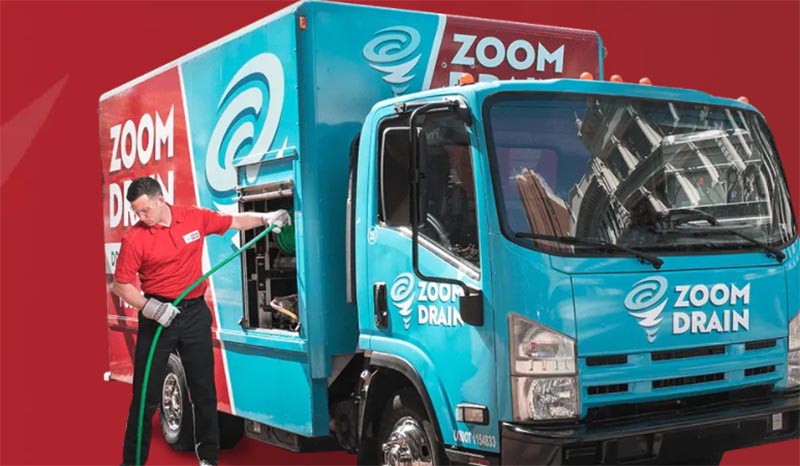
Zoom Sewer and Drain Cleaning provides drain cleaning, maintenance, sewer inspections, repair and replacement services for residential and commercial customers. The business began in 1995 and had been franchising since 2013. They have their headquarters in Norristown, Pennsylvania, and Zoom Franchise Company, LLC is the franchisor.
Training

Training for the franchisee’s principal owner and personnel will be provided by the franchisor or its representatives and agents. Before starting your franchise, Zoom Sewer and Drain Cleaning will require you to complete their training program. It comes in two phases:
- Phase 1: 2 to 3 days training at the Franchise Business
- Phase2: 2 to 3 days in Norristown, PA
The franchisor may also require you to attend additional training during the length of your term agreement. The franchisor is planning to hold a 2 to 3-day national Zoom Fest yearly. This will be held in Norristown, PA, or any location it designates. They will require franchisees to attend, but their managers will be welcome.
Territory
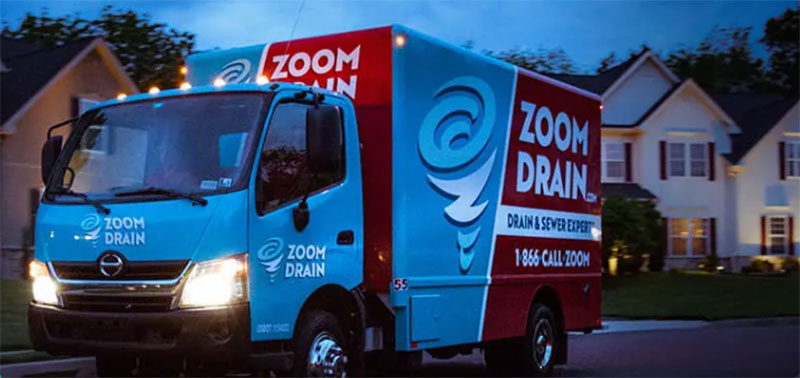
The franchisor will designate a protected territory where the franchisees will operate their business. Before signing any Franchise Agreement, both the franchisor and the franchisee will agree on a geographic territory.
The franchisor will base the protected territory on contiguous zip codes that will consist of approximately 500,000 individuals. This will be based on the most recent U.S. Census data at the time of signing the franchise agreement. This means that as long as the deal is taking effect, the franchisor or its affiliates will not locate, operate, or grant a franchise for another Zoom Sewer and Drain Cleaning business within the protected territory.
Obligations
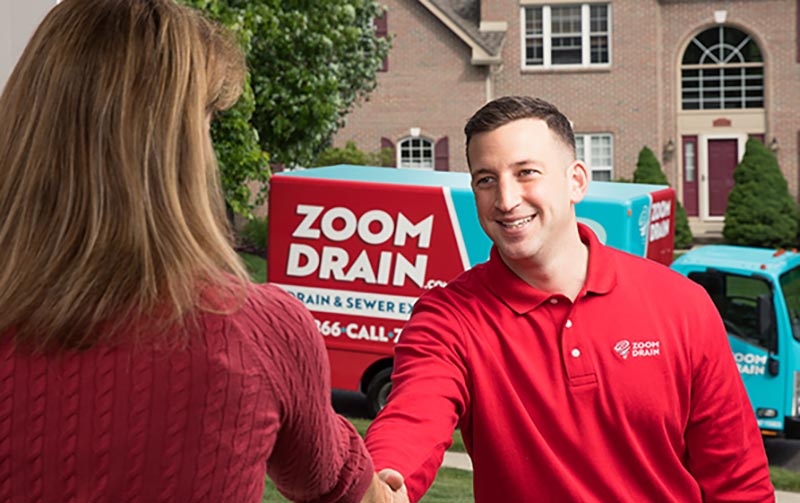
The franchisor requires the franchisee or its principal owner to exert every effort to take responsibility for the management of the business. They will do this on a daily basis unless they agree on an alternate arrangement. With the franchisor’s discretion, the franchisee can hire a manager to handle the operations of the business.
Franchisors will also require you to sell products and services that have their approval. On the other hand, franchisees aren’t allowed to sell unauthorized products or services in compliance with the franchise agreement. Franchisees are also not allowed to solicit business outside of the protected territory. They are, however, permitted to serve customers outside of the protected territory as written in the FDD.
Term of Agreement

The initial franchise will take ten years after the signing of the agreement. You can renew the contract for another ten years, for four times, if you continue to meet the requirements.
Financial Assistance

Zoom Sewer and Drain Cleaning doesn’t offer direct or indirect financial assistance to its franchisees. In addition, they will not guarantee a franchisee’s note, lease, or obligation.
Did You Know?
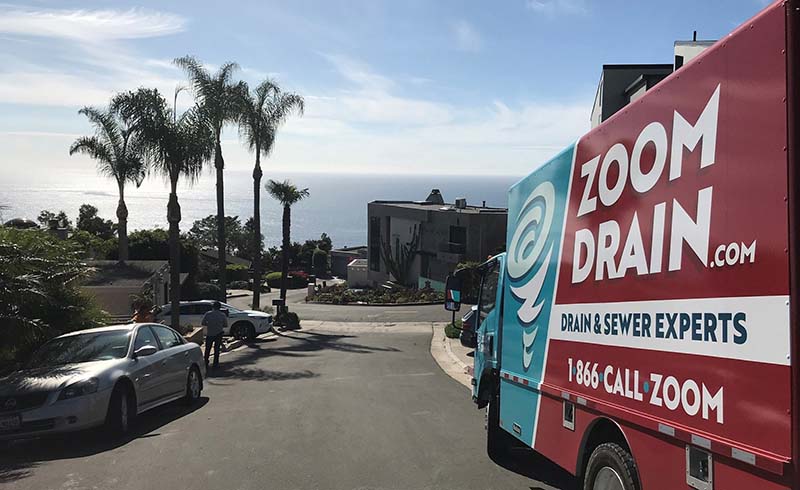
Get to know more about Zoom Sewer and Drain Cleaning before you get that franchise. Here are some facts about the business:
- They have very little competition in the niche. Most of their competitors are independent plumbers and contractors
- According to the company’s co-founder and COO, Ellen Rohr, this is a recession-resistant business, and the Covid-19 pandemic has proven this
- They have a reported $12 million in revenue with 53 employees and 15 franchisees
Your Investment
The table below shows the estimated cost of a Zoom Sewer and Drain Cleaning franchise. Take note that these numbers may change without any prior notice.
| Name of Fee | Low | High |
|---|---|---|
| Initial Franchise Fee | $35,000 | $35,000 |
| Lease | $3,000 | $9,000 |
| Leasehold Improvement | $2,000 | $40,000 |
| Furniture, Fixtures and Computer System | $7,500 | $13,000 |
| Vehicles | $7,000 | $9,500 |
| Vehicle Wrap and Design | $4,500 | $5,500 |
| Initial Equipment and Inventory of Supplies | $40,000 | $50,000 |
| Business Licenses and Permits; Deposits and Pre-Paid Expenses | $0 | $5,000 |
| Professional Fees | $500 | $3,000 |
| Insurance – Quarterly | $4,000 | $6,000 |
| Initial Training Expenses | $500 | $3,000 |
| Initial Marketing Expenses | $45,000 | $60,000 |
| Additional Funds – 6 months | $50,000 | $100,000 |
| ESTIMATED TOTAL | $199,000 | $341,000 |
Other Costs
| Type of Fee | Amount |
|---|---|
| Royalty Fee | 5% of Net Sales. |
| Marketing Fee | Up to 2% of Net Sales. Currently, the franchisor does not charge this fee. |
| Call Center Fee | Up to $25 per scheduled appointment. Currently, the franchisor does not operate the Call Center or charge a Call Center Fee. |
| Technology Fee | The then-current Technology Fee; currently $500 per month. |
| Webpage Development and Optimization Fee | The then-current fee charged by the franchisor’s designated website SEO provider; currently $695 per month. |
| Additional Location Fee | The then-current Additional Location Fee; currently $2,000. |
| Transfer Fee | Up to 50% of the then-current Initial Franchise Fee. |
| Renewal Fee | Up to 25% of the then-current Initial Franchise Fee. |
| Additional Training and Assistance | Fee and all expenses. Currently $1,000 per day plus travel expenses. |
| National Conference | Reasonable fees and all expenses. |
| Testing for Supplier Approval | Reasonable fee. |
| Interest on Late Payments | Lesser of 1.5% per month or maximum legal rate. |
| Audit Fee | Cost of audit. |
| Taxes | Actual cost. |
| Indemnification | Will vary under circumstances. |
| Costs and Attorneys’ Fees | Will vary under circumstances. |
For other franchising information, check out more articles here at Franchise How!


The Rise of Paris Banh Mi Franchise

Chick-fil-A Franchising Opportunities in 2024

Insider Interviews: Craig Batiste Co-Founder and CEO of Mr. Fries Man

The Top 8 Most Expensive Franchises to Buy

Want To Own A Hertz Franchise? Here’s How Much It Will Cost You

